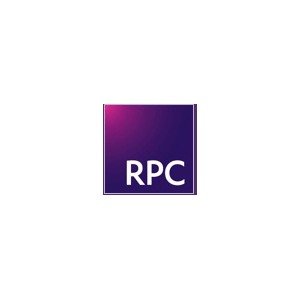Best Data Center & Digital Infrastructure Lawyers in Hong Kong
Share your needs with us, get contacted by law firms.
Free. Takes 2 min.
Or refine your search by selecting a city:
List of the best lawyers in Hong Kong
About Data Center & Digital Infrastructure Law in Hong Kong
Hong Kong has established itself as a leading hub for data centers and digital infrastructure in Asia. This sector supports the region's rapid technological development, digital economy, and international connectivity. Data centers are physical facilities that house critical IT equipment, enabling services ranging from cloud computing to financial transactions. Digital infrastructure includes broadband networks, cloud storage, telecommunication systems, and the frameworks that allow digital services to function efficiently and securely. As this sector evolves, there is an increasing intersection with issues such as data privacy, cybersecurity, land use, and regulatory compliance, creating the need for specialized legal expertise.
Why You May Need a Lawyer
Seeking legal advice is crucial for organizations or individuals involved in the data center and digital infrastructure sectors in Hong Kong. Here are some common reasons why legal assistance might be required:
- Negotiating and drafting data center service agreements, leases, or partnership contracts
- Understanding regulations around data privacy and cross-border data transfers
- Complying with local zoning, building, and environmental regulations for data center development
- Resolving disputes regarding intellectual property, service outages, or breaches of contract
- Managing employment and contractor issues related to IT staff and facilities management
- Handling mergers, acquisitions, or restructuring of data center businesses
- Assistance with regulatory filings and interactions with government bodies
Local Laws Overview
Operating data centers and developing digital infrastructure in Hong Kong involves navigating several key legal frameworks and regulations:
- Personal Data (Privacy) Ordinance - Sets out requirements for the collection, use, storage, and transfer of personal data. Data users must ensure compliance with data protection principles and may need to appoint a Data Protection Officer.
- Telecommunications Ordinance - Regulates telecommunication services and networks. Licensing and approvals may be required for certain infrastructure projects.
- Building Ordinance and Planning Regulations - Govern land use, building safety, and planning permissions for constructing or converting facilities for data center use.
- Cybersecurity Guidance and Industry Standards - While Hong Kong does not have a standalone cybersecurity law, there are guidelines and self-regulatory frameworks, especially for critical infrastructure and financial institutions.
- Environmental and Energy Efficiency Regulations - Data center projects must comply with environmental impact rules and may benefit from incentives for adopting green practices.
- Cross-Border Data Transfer and International Compliance - Businesses may need to address international legal obligations and standards, especially if handling data from overseas clients or users.
Frequently Asked Questions
What regulations must a new data center in Hong Kong comply with?
A new data center must comply with building and planning permissions, the Personal Data (Privacy) Ordinance for data protection, telecommunication requirements if providing network services, and environmental regulations related to energy use and emissions.
Is there a need to obtain a specific license for operating a data center?
While there is no general license for running a data center, licenses may be required for providing certain telecommunication or hosting services. It is important to review service offerings and consult legal counsel.
What data privacy laws affect data centers in Hong Kong?
The Personal Data (Privacy) Ordinance is the primary legislation, setting out requirements for the protection of personal data handled by data centers.
Can personal data be transferred from Hong Kong to other countries?
Currently, Hong Kong allows cross-border data transfers, but the transferring party must ensure that the recipient jurisdiction maintains comparable data protection standards. The Privacy Commissioner has issued guidance for secure data transfers.
How does Hong Kong regulate cybersecurity for digital infrastructure?
There is no standalone cybersecurity law yet, but sectoral guidance exists, especially for financial institutions and operators of critical infrastructure. Good industry practices and compliance with cybersecurity standards are expected.
Are data centers in Hong Kong required to implement green or energy efficient measures?
While not mandatory, data centers are encouraged to adopt energy efficiency measures. Incentives and recognition schemes are available for green practices.
What legal risks should be considered in leasing property for a data center?
Key risks include compliance with zoning and use restrictions, building code requirements, utility and network connectivity, and clear contractual terms for maintenance and operational liabilities.
How can disputes involving service outages or data loss in a data center be resolved?
Such disputes are typically governed by service level agreements and contracts. Dispute resolution may involve negotiation, mediation, arbitration, or litigation depending on the terms agreed upon.
What taxes apply to operating a data center in Hong Kong?
Standard corporate tax applies. Hong Kong offers a simple tax structure with no value-added tax or withholding tax and various incentives for tech and innovation investments.
Who enforces regulations relevant to data centers?
Key authorities include the Privacy Commissioner for Personal Data, the Office of the Communications Authority, the Buildings Department, and the Environmental Protection Department.
Additional Resources
The following organizations and government bodies are valuable resources for those seeking assistance or information on legal matters related to data centers and digital infrastructure in Hong Kong:
- Privacy Commissioner for Personal Data (PCPD)
- Office of the Communications Authority (OFCA)
- Innovative Technology Commission (ITC)
- Hong Kong Science and Technology Parks Corporation (HKSTP)
- Hong Kong Internet Registration Corporation Limited (HKIRC)
- Buildings Department
- Environmental Protection Department
- Hong Kong Computer Emergency Response Team Coordination Centre (HKCERT)
Next Steps
If you require legal assistance with data center or digital infrastructure matters in Hong Kong, consider the following steps:
- Identify the specific legal issue or area of concern, such as data privacy compliance, real estate leasing, or contractual disputes.
- Gather all relevant documentation, including contracts, correspondence, and regulatory communications.
- Contact a legal professional with expertise in technology, real estate, or corporate law. Experience in data center and digital infrastructure is crucial.
- Consult with the relevant government authority if your question involves licensing, permits, or compliance issues.
- Consider joining industry associations for networking and staying updated on regulatory changes.
- Continue to monitor legal and regulatory developments as the sector is dynamic and subject to change.
A specialized legal advisor can help you navigate complex regulations, draft or review agreements, represent you in disputes, and provide guidance to ensure your operations remain compliant and future ready.
Lawzana helps you find the best lawyers and law firms in Hong Kong through a curated and pre-screened list of qualified legal professionals. Our platform offers rankings and detailed profiles of attorneys and law firms, allowing you to compare based on practice areas, including Data Center & Digital Infrastructure, experience, and client feedback.
Each profile includes a description of the firm's areas of practice, client reviews, team members and partners, year of establishment, spoken languages, office locations, contact information, social media presence, and any published articles or resources. Most firms on our platform speak English and are experienced in both local and international legal matters.
Get a quote from top-rated law firms in Hong Kong — quickly, securely, and without unnecessary hassle.
Disclaimer:
The information provided on this page is for general informational purposes only and does not constitute legal advice. While we strive to ensure the accuracy and relevance of the content, legal information may change over time, and interpretations of the law can vary. You should always consult with a qualified legal professional for advice specific to your situation.
We disclaim all liability for actions taken or not taken based on the content of this page. If you believe any information is incorrect or outdated, please contact us, and we will review and update it where appropriate.
Browse data center & digital infrastructure law firms by city in Hong Kong
Refine your search by selecting a city.














